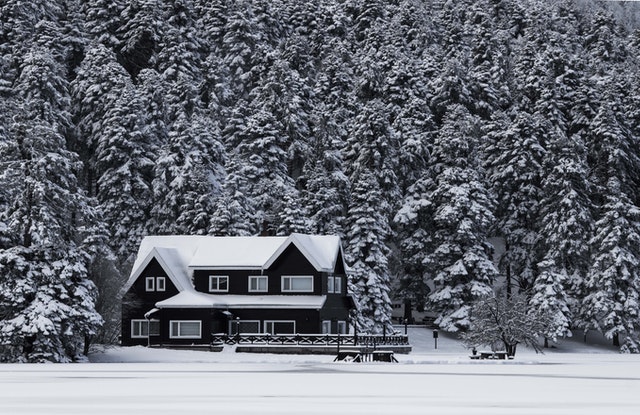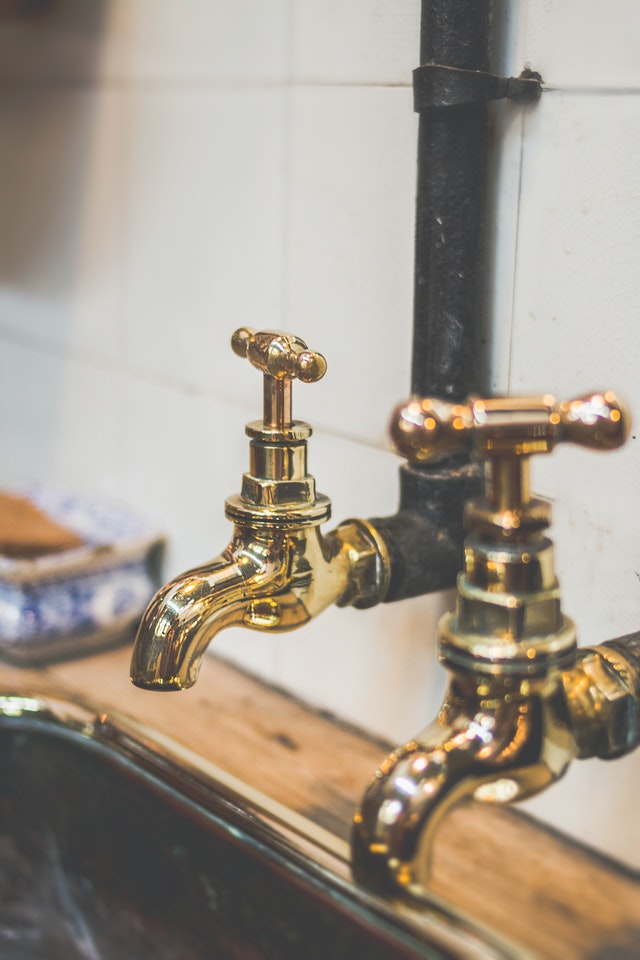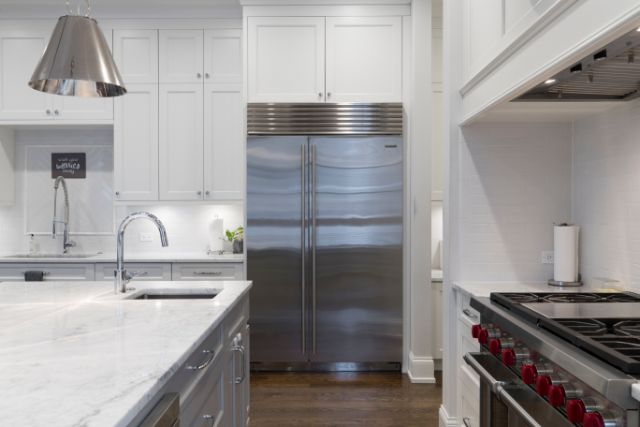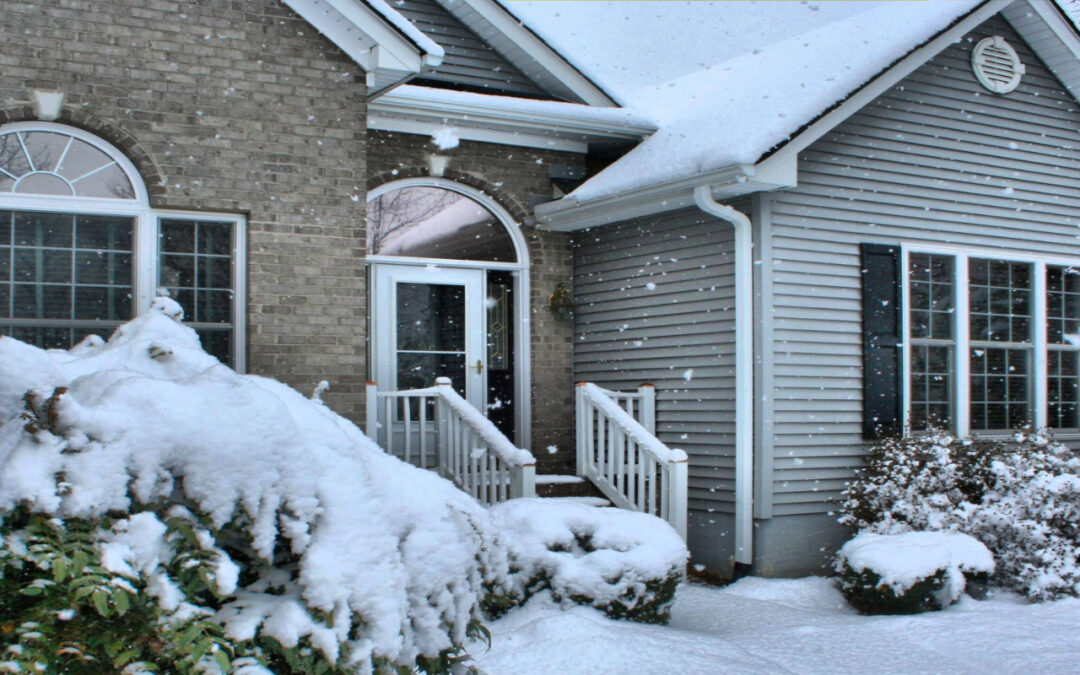There are endless benefits to putting in the effort to winterize your home. Your home will be more energy efficient, so it can help keep money in your bank account by saving on your energy bills. In addition to saving you some crucial cash, taking the time to winterize your house can help to protect it from snow and ice damage during any storms that hit.

Photo by burak kostak from Pexels
What Does “Winterizing” Mean?
The most common use of winterizing is for a second home or vacation home that will not be used in the winter months. If you have a home in a colder climate, and you won’t be going to it for long periods of time, it is crucial to learn how to winterize your home.
Learning to winterize your home will save you costly damage from the potential of bursting pipes (a leading cause of flooding in your basement and home). In cold weather, pipes that haven’t had water running through them consistently will have any remaining water freeze. As water freezes it expands, putting pressure on your pipes, causing them to potentially burst. This would be extremely costly and unfortunate to have to deal with upon returning to your house.
If you don’t winterize your plumbing, appliances, etc, you could be risking major damage equating to lots of lost money, which is why prepping the house for the cold is the best option.
How to Winterize Your Home Plumbing
While warm weather poses it’s own set of plumbing risks, if you plan to have a vacant home for the winter, winterizing is really important. It’s worth the time and effort to ensure that your home remains in great shape despite the freezing cold temperatures and storms it may endure while you are away.
There are some quick simple things to winterize your home that you will want to ensure you do before leaving, such as adjusting your thermostat, shutting off the water, turning off your gas stove, unplugging everything, and unclogging your gutters.
Some of the more time consuming items to winterize are also the most important. You should make sure to fully prepare your plumbing system for the cold weather. This includes your pipes, toilets, septic tank, well, refrigerator, dishwasher, washing machine, and pool pump. Winterizing these items will make it so that when you come back in the spring, you can simply resume enjoying your home without a care in the world.
Read on to learn how to winterize some of the most crucial items in your home!

Photo by Dominika Roseclay from Pexels
Pipes
When learning how to winterize your home, starting with your pipes is a great way to go!
Try these ideas to winterize your pipes:
- Turn off the main water valve, water pump, and water heater
- Open all drain valves and all taps
- Blow excess water out of your pipes using an air compressor
- Discharge the hot water tank until it is empty by opening the drain valve
- Drain any water left in the holding tank
- Add antifreeze to sink and tub drains and double check any that could have drain traps
- Insulate pipes with insulation sleeves, wrapping or using slip-on foam pipe insulation
- Drain hose bibs and insulate with covers
- Use heat tape to protect pipes from freezing
Toilets
If you don’t winterize your toilets, you could come back to a cracked toilet bowl to deal with. You can winterizing a toilet in just a few easy steps… it’s really simple!
- Turn off the water in your house
- Flush toilets to remove as much water as you can from the bowl and the tank
- Add antifreeze to prevent any remaining water from freezing
Is your toilet already cracking, chipping, or having trouble flushing? There are lots of reasons for toilet malfunctions, but not all require replacement. You can learn more about when to replace your toilet in a recent article.
Septic Tanks
Septic tanks are expensive parts of your home, so prolonging their lives is a high priority for most homeowners. You will want to prevent a frozen system as much as possible by learning how to winterize your home properly.
If the house will be completely empty for the winter, you should consider pumping the tank. If a tank is left full without much usage, then the sewage will get very cold and potentially freeze. Emptying the tank if possible will set you up better for when you revisit your home in the warmer months.
Wells
Most wells are drilled or bored so deep into the ground, that they most likely will not freeze, except on the frost line. The frost line is the depth below ground that water will potentially freeze at, so the water line ideally should be kept below this threshold.
You still will want to take steps to winterize your well. Follow these steps to do so:
- Insulate the pipes with foam insulation sleeves
- Securely cover the well and the pump within the insulated enclosure
- If the well uses a jet pump that sits on the surface above the well, use insulated housing for it
Refrigerators

Photo by Alex Qian from Pexels
Few things are as highly used in a home than the refrigerator. When learning how to winterize your home, focusing on big ticket items, such as a fridge, is a great idea!
To winterize your fridge, you should…
- First remove food and turn off the circuit breaker, or unplug the cord
- Turn the icemaker off
- Turn off the water supply to the refrigerator
- Clean the interior with 1:1 baking soda and water solution, then wipe dry
- Place an open box of baking soda inside the fridge
- Leave the doors open to help prevent mold and mildew from building up
Dishwashers
To make sure that you protect your dishwasher from the winter climate while you are away, you will want to follow these steps:
- Cut off the water supply to your home
- Add a half gallon of antifreeze inside the tub of your dishwasher and close the door
- Power on the unit and start a cycle. This should start with the unit draining
- As soon as you hear the water moving through the drain, turn off the dishwasher and cut power to it
- Open the door and keep it open to prevent mold from forming while you are away
- Turn off the circuit breaker until you return to the home
Disconnect the inlet hose and set it inside a bucket
Clothes Washer/Laundry Machine
Washing machines have residual water in the pump and hoses that may freeze and damage your pipes in the cold weather.
To winterize your washing machine, you will only need the following tools:
- Screwdriver
- Antifreeze
- a shallow pan
To winterize a washing machine, you should do the following:
- Cut off the water supply and disconnect the power cord
- Drain the water into the shallow pan
- Grab a partner and tilt the washing machine 6 inches to drain any extra water from the pump
- Add 1 gallon of antifreeze to the empty wash drum and close the door
- Set the unit to spin only cycle and run for about a minute before powering off the unit
- Keep the unit unplugged until you return to the home and start using it again
Pool Pump
Winterizing a pool is no joke, but is so important to ensure the longevity of such a fun part of your home. The pool pump is critical to having a well-run pool, and extra care should go into protecting it from harsh winter climates. To winterize your pool pump…
- If you have a heater, turn it off and wait at least twenty minutes before moving on to the next step
- Turn off the power to your pump
- Disconnect your pump and filter
- Make sure the water has drained out of the pump and hold it upside down to remove any remaining water
- Remove the drain cap from the underside of your filter and allow it to drain overnight
- Remove the drain plugs
- Turn the pump on for one or two seconds to get rid of excess water
- Blow out the pipes by unscrewing fittings and using a wet-dry shop vacuum or an air compressor to blow out the pipes and remove all water
When learning how to winterize your home, remember that preparation is key! By having all supplies ready to go and having a plan in place for each part of the home you will be winterizing, you are sure to have great success in securing your home for the winter.
Metro-Detroit Plumbing Problems Hotline:
Location: White Lake, Michigan
Phone: (248) 363-5864
Location: Hartland, Michigan
Phone: (810) 632-7420
Location: Fowlerville, Michigan
Phone: (517) 223-4360
Email: [email protected]
Request a FREE repair quote with Premier Plumbing, Inc. online at premierplumbing-mi.com/get-a-plumbing-quote/

